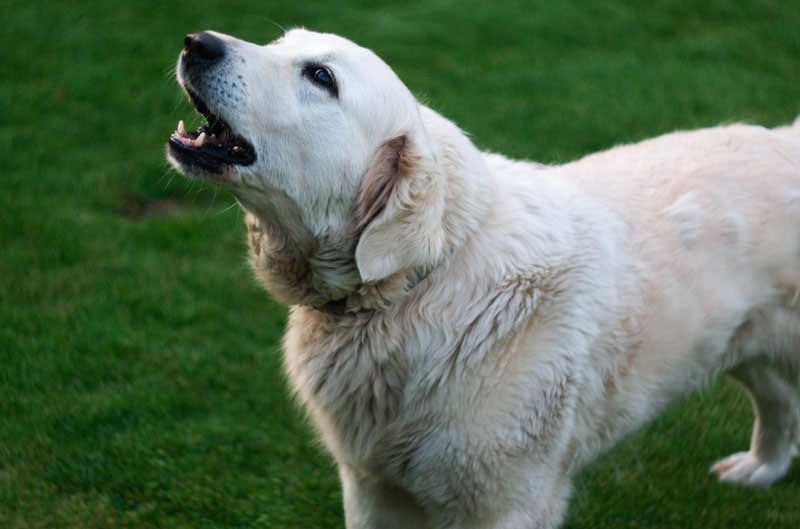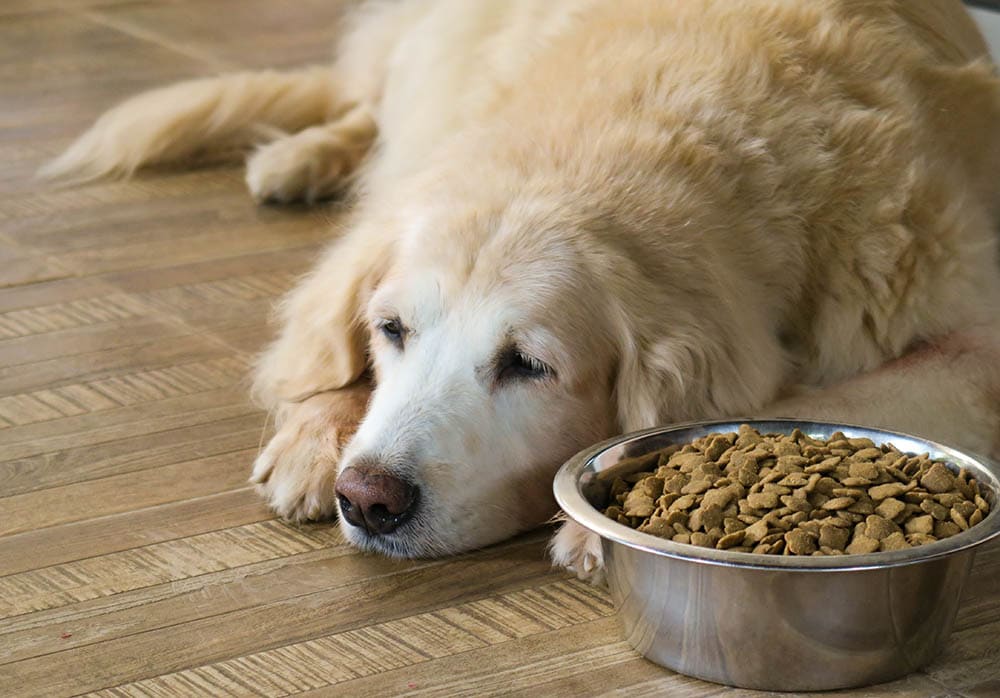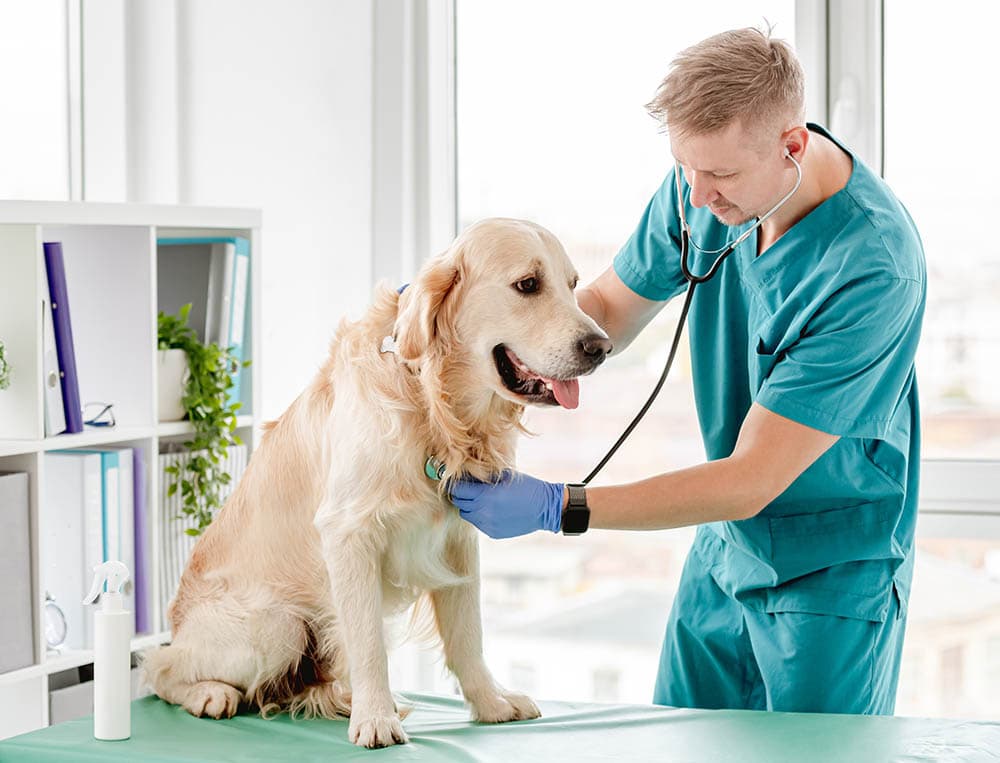Few dogs are as calm, loyal, and gentle as the Golden Retriever. Golden Retrievers are also intelligent, playful, and very active as a medium to large-sized breed. They make excellent companions and are great with children, which is why they’re so popular in the United States and many other countries across the world.
Golden Retrievers are often considered the “perfect family dog.” However, one unfortunate fact about the Golden Retriever breed is that they have a high rate of cancer: over 60%. That’s one of the highest cancer rates of all dog breeds and a tough pill to swallow for many Golden Retriever pet parents.
If you own a Golden Retriever or are contemplating adopting one and have questions about their health, the information below will be beneficial. Read on to discover more facts, figures, and statistics about this beautiful dog and what you can do to keep them healthy and happy.
Why Do Golden Retrievers Have a High Cancer Rate?
There are several working theories about why Golden Retrievers have a high cancer rate, although none has been proven outright. One of the most commonly held theories is simply that, since the advent of immunizations for dogs, the lifespans of the dog population, in general, have increased dramatically.

Unfortunately, the longer a dog lives, the higher the chance they will be diagnosed with cancer. For example, once a dog reaches 10 years of age, their chance of being diagnosed with cancer increases to 50%.1 Another factor is that Golden Retrievers are larger dogs; statistically speaking, larger dogs have a much higher incidence of cancer than smaller dogs.2
25% of all dogs will unfortunately develop some sort of cancer throughout their life.
One widely held belief is that Golden Retrievers have had a cancer-causing gene in their genetic makeup since the breed was first seen. That fact, coupled with their relatively small gene pool, has led to a high incidence of inbreeding and, thus, a higher cancer rate. However, breeding the cancer gene out of Goldens isn’t as simple as it might sound.
For example, if the same gene is connected to their size, fur color, or another identifying factor of the breed, breeding the gene out might also cause a drastic change that might erase the dog we all know as a Golden Retriever.
Modern research has actually established two specific gene regions that may predispose Golden Retrievers to two types of cancer, splenic hemangiosarcoma and lymphoma. Further studies are required to validate these results, so genetic testing may be the future when it comes to identifying individual dogs with a higher risk of cancer.
One last possible reason Golden Retrievers may be diagnosed with cancer more frequently than other breeds might be that they are quite a popular breed and are taken to the vet more often. More frequent vet visits lead to a higher cancer diagnosis rate, but that doesn’t necessarily mean Goldens get more or less cancer than other breeds.

At What Age Do Most Golden Retrievers Get Cancer?
Studies have found that the risk of certain cancer types increases significantly once a Golden Retriever has reached 6 years of age. It peaks at the 10 to 12-year mark, which is also the average age for a Golden.
What Are the Most Common Cancers in Golden Retrievers?
There are four types of cancer that Golden Retrievers are stricken with most often. They are hemangiosarcoma, osteosarcoma, lymphoma, and mast cell tumors. Hemangiosarcoma commonly affects a Golden’s spleen and is a type of bleeding tumor that is particularly severe.
Osteosarcoma affects the bones and is one of the leading bone cancers affecting dogs in general. Lymphoma affects the lymphocytes, a type of white blood cell. Mast cell tumors display skin lumps and lesions, but can also affect internal organs, so you should have your Golden checked if they suddenly have a suspicious skin lump.
How Do I Know If My Golden Retriever Has Cancer?
There are several signs of cancer in dogs, including Golden Retrievers. Some are easier to spot and identify than others. Some also indicate a wide range of other illnesses, and without a thorough clinical exam and additional tests, your vet may not be able to tell if these signs are due to cancer or another noncancerous illness. If you see any of the signs below, it’s highly suggested that you take your Golden to your local vet as quickly as possible. They include:
- Wounds and sores that don’t heal quickly (or at all)
- Weight loss, sudden or gradual
- Lumps and bumps on or under their skin that seem to form rapidly
- Changes in skin color in those areas
- A drastic change in their potty habits, including timing, color, odor, etc.
- Reduced appetite
- Vomiting
- A change in your Golden’s mood from happy to sad, depressed, or lethargic
- Outward evidence that they are in pain, with no evidence why
- Sudden onset of lethargy and unwillingness to move
- Pale gums
- Distended abdomen
- Limping
- Swelling on the limbs, often painful
- Enlarged lymph nodes
- Changes in their breathing or coughing
There are many vague and specific signs of cancer in dogs. Instead of waiting for vague signs to become more obvious, report any changes you have noted with your Golden Retriever’s behavior, habits, appetite, posture, or anything else to your vet.

How Do I Keep my Golden Retriever From Getting Cancer?
There’s good news and bad in terms of preventing your Golden Retriever from getting cancer. The good news is that there are several things you can do to keep your pet healthy and, possibly, reduce their chance of this deadly disease. The bad news is that genes may be responsible for causing cancer in your dog’s body, but further research is required to better clarify this.
Close and regular monitoring of your Golden by a vet, with a full clinical exam and sometimes X-rays and scans, especially as they are getting over the age of 6-8, may allow for early cancer detection and prompt treatment.
Below are several things you can do to (possibly) reduce the chance that your gorgeous Golden will be afflicted with cancer or to be able to recognize the early warning signs:
- Take your pup to the veterinarian once a year for a checkup, vaccination, and, if required, blood and urine testing and cancer screening
- Do this more regularly as your dog ages
- Get all lumps and bumps checked out as soon as they appear
- Weigh your dog regularly and monitor their behavior, appetite, and toileting habits
- Speak to your vet about possible supplements in their diet, although there is currently limited evidence they have anti-cancer properties
- Speak to your vet about the pros and cons of spaying or neutering your Golden Retriever and the best age to do so
- Ensure you are feeding a complete and balanced diet that follows AAFCO recommendations
- Get your pup insured from the early days, to give you financial assurance in case of an illness
How Expensive Is Dog Cancer Treatment?
It’s rather tricky to say how much cancer treatments will cost for any dog, including a Golden Retriever. The reason is the dog’s size, cancer type, and several other factors.
For example, the cost of chemotherapy will vary significantly based on the size of the dog being treated. For a Golden Retriever, it will likely be higher as they are a larger breed. Chemotherapy may cost anywhere between $2,500 and $10,000. There are also additional fees for CT (computerized tomography) scans, surgery, monitoring, ICU care, and more.
Can you Smell Cancer on a Dog?
Technically, you can’t smell actual cancer affecting your Golden Retriever. However, if they have cancer in their mouth or skin with infections starting, you will often smell a different, and usually foul, odor from their mouth or the affected skin areas.
Are There Foods That Can Prevent Cancer in Dogs?
As we discussed earlier, preventing cancer in dogs, including Golden Retrievers, is not always possible.
Although several foods are known to have anti-cancer properties in humans, either by anecdotal nonscientific evidence or by actual research, this cannot be extrapolated to dogs as there is no evidence that these may lower their risk for cancer.
Another important consideration is that a dog’s diet is not the same as ours, and many ingredients that we can safely consume daily can be dangerous for them.
However, making sure your dog is eating a balanced and complete diet from a high-quality verified supplier and dog food producer is still very important. High levels of carbohydrate in food is not ideal, as they can promote existing cancer growth, so a good source of fat and protein is more appropriate.
There is some evidence that omega-3 fatty acids may help dogs fight against cancer, but we don’t know at what level they may have an anti-cancer effect. VCA Animal Hospital recommends that canine cancer patients eat a diet with 25-40% dry matter fat and 5% or great of dry matter of dietary omega-3 fatty acids. Further extensive research is required when it comes to fatty acids and their potential role in helping dogs battle cancer or possibly even preventing it from happening in the first place.
We recommend checking with your veterinarian before considering any supplements for your Golden Retriever or changing their diet. They can help you introduce the food or supplement to your pup, tell you how to prepare it, and so forth.

What Is the Average Lifespan of a Golden Retriever?
The lifespan of the typical dog is between 8 and 15 years, although, like humans, they can live quite a few years longer than the average. Golden Retrievers are similar and live between 10 to 12 years of age. Some Golden Retrievers have lived to 17, 18, and even 19 years, which is exceptionally long for any dog. Augie from Oakland, Tennessee, who is believed to be the oldest Goldie, sadly passed away before her 21st birthday.
Conclusion
Although it seems rather unfair, Golden Retrievers are afflicted with cancer more than almost any other dog breed. Your Golden Retriever has a 60% plus chance of getting cancer at some point in their life. The good news is that, if detected early, veterinarians can successfully treat several types of cancer.
While distressing, we hope that you were able to take something away from our article. If your precious puppy is suffering from cancer, we wish you and them the best of luck for a speedy recovery.
Featured Image Credit: LightField Studios, Shutterstock
Contents
- Why Do Golden Retrievers Have a High Cancer Rate?
- At What Age Do Most Golden Retrievers Get Cancer?
- What Are the Most Common Cancers in Golden Retrievers?
- How Do I Know If My Golden Retriever Has Cancer?
- How Do I Keep my Golden Retriever From Getting Cancer?
- How Expensive Is Dog Cancer Treatment?
- Can you Smell Cancer on a Dog?
- Are There Foods That Can Prevent Cancer in Dogs?
- What Is the Average Lifespan of a Golden Retriever?
- Conclusion













